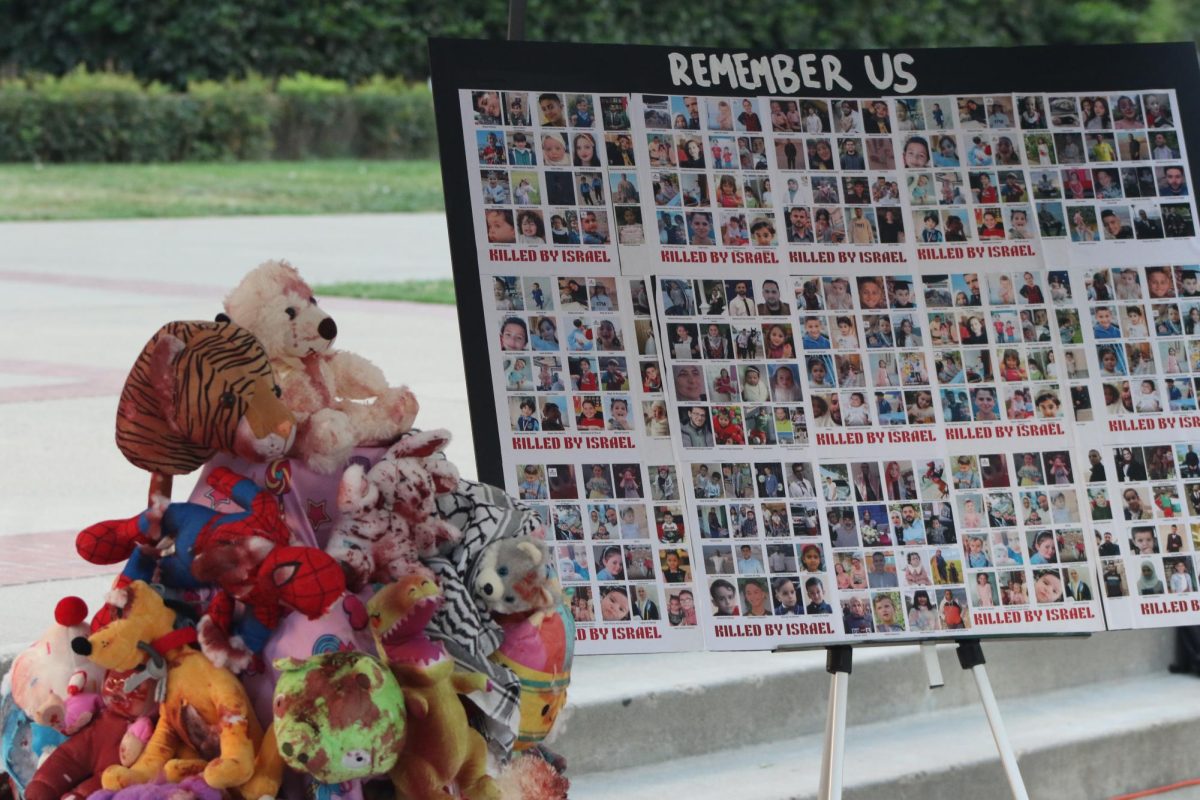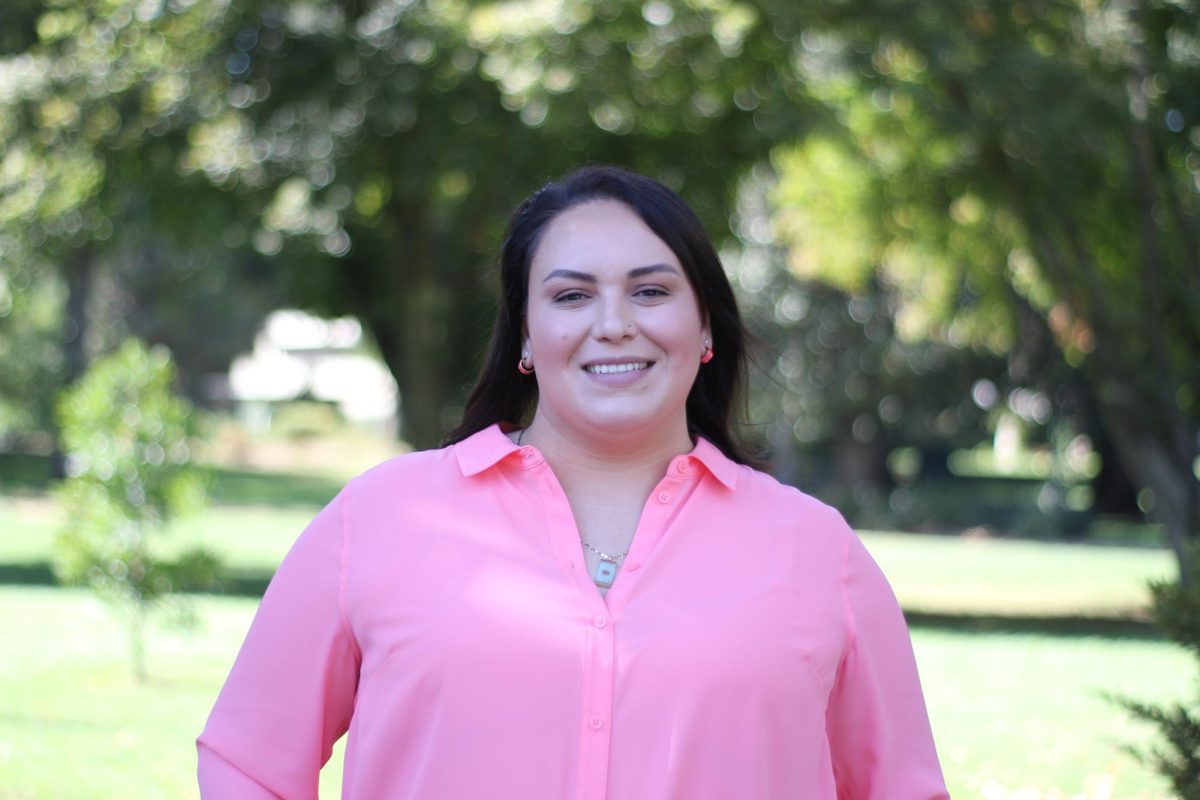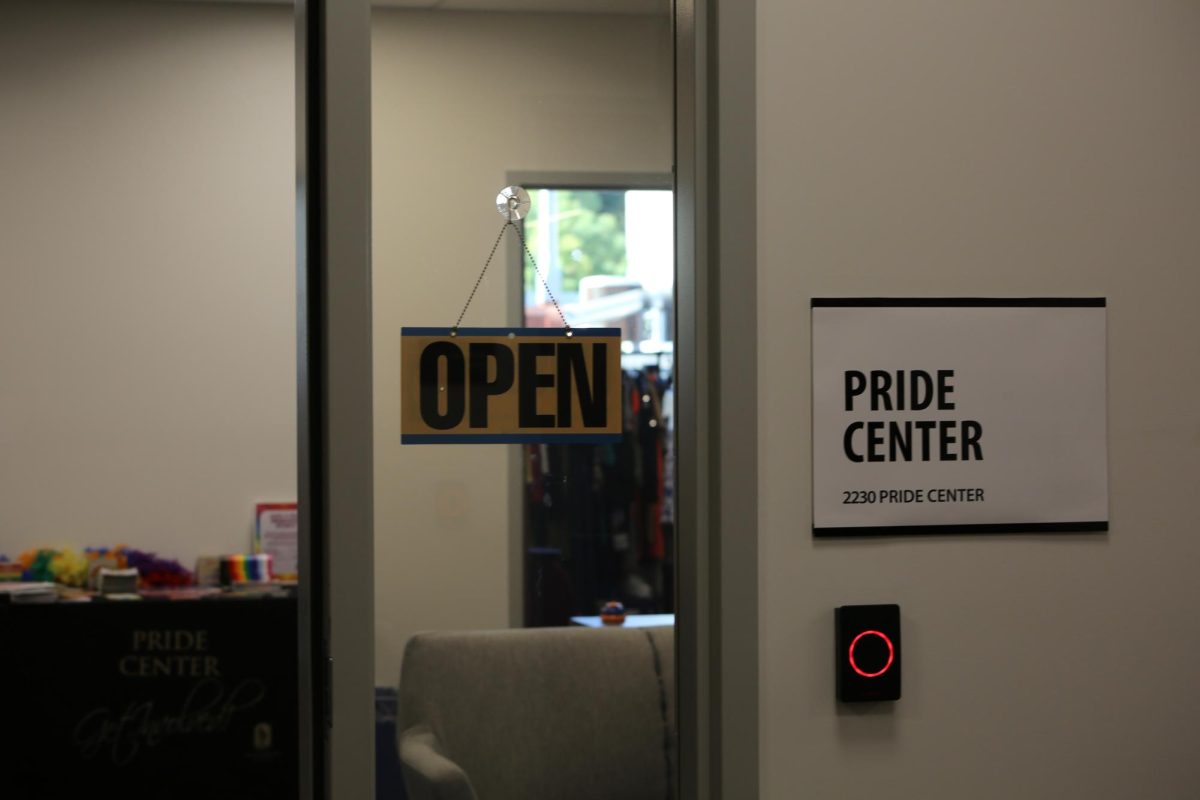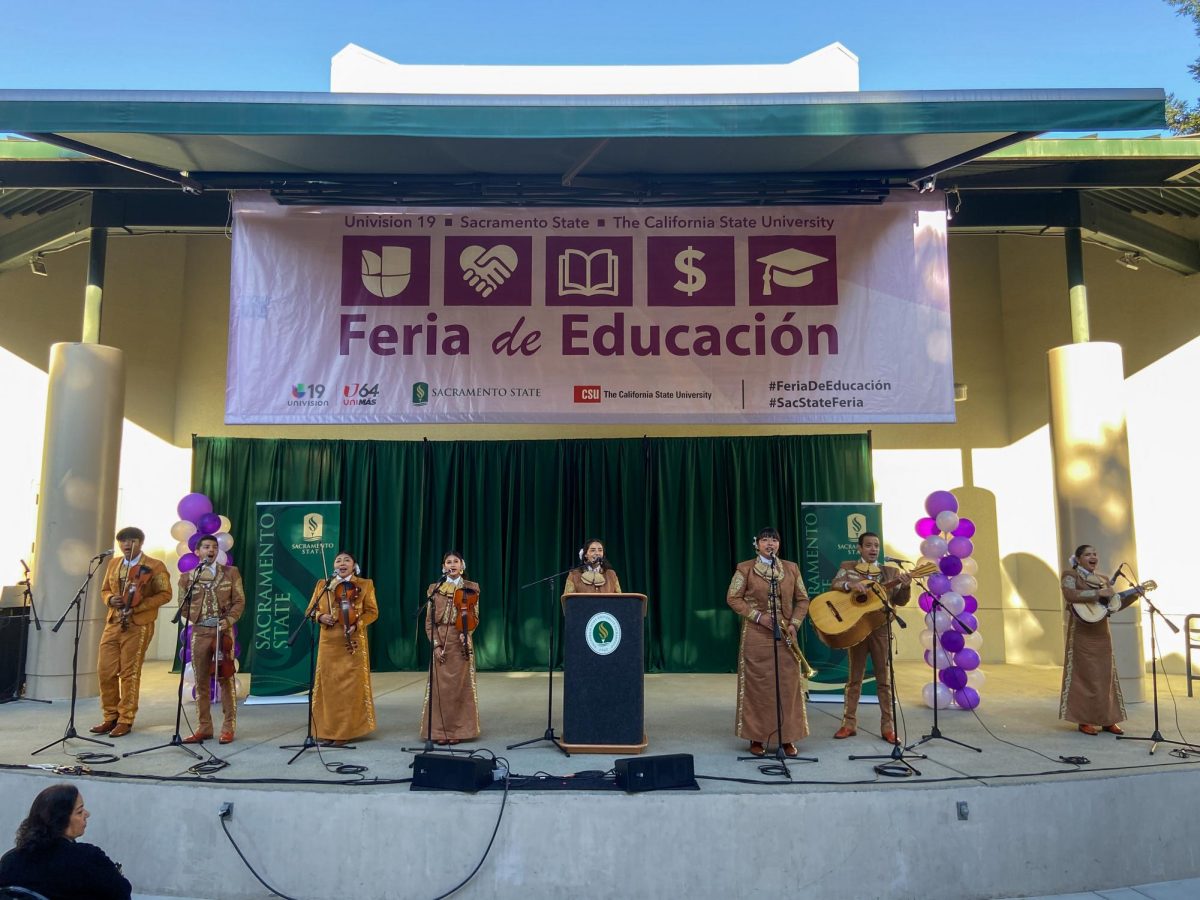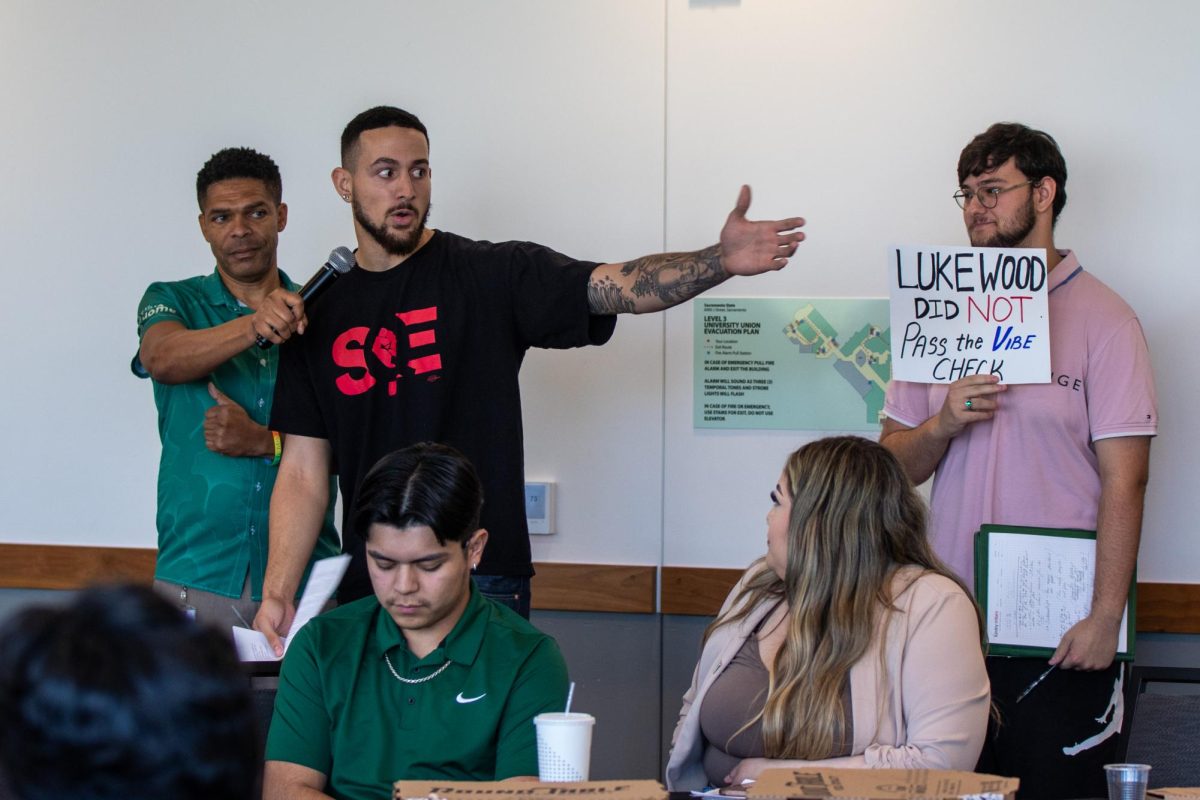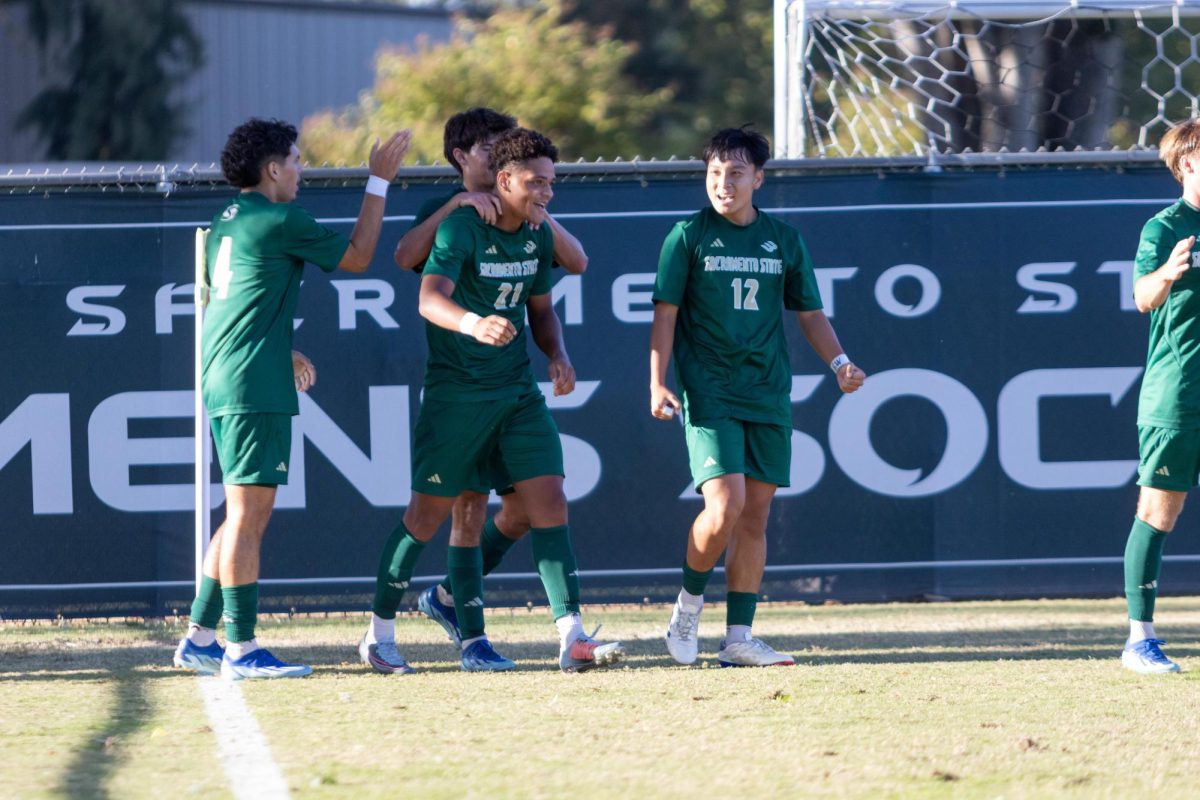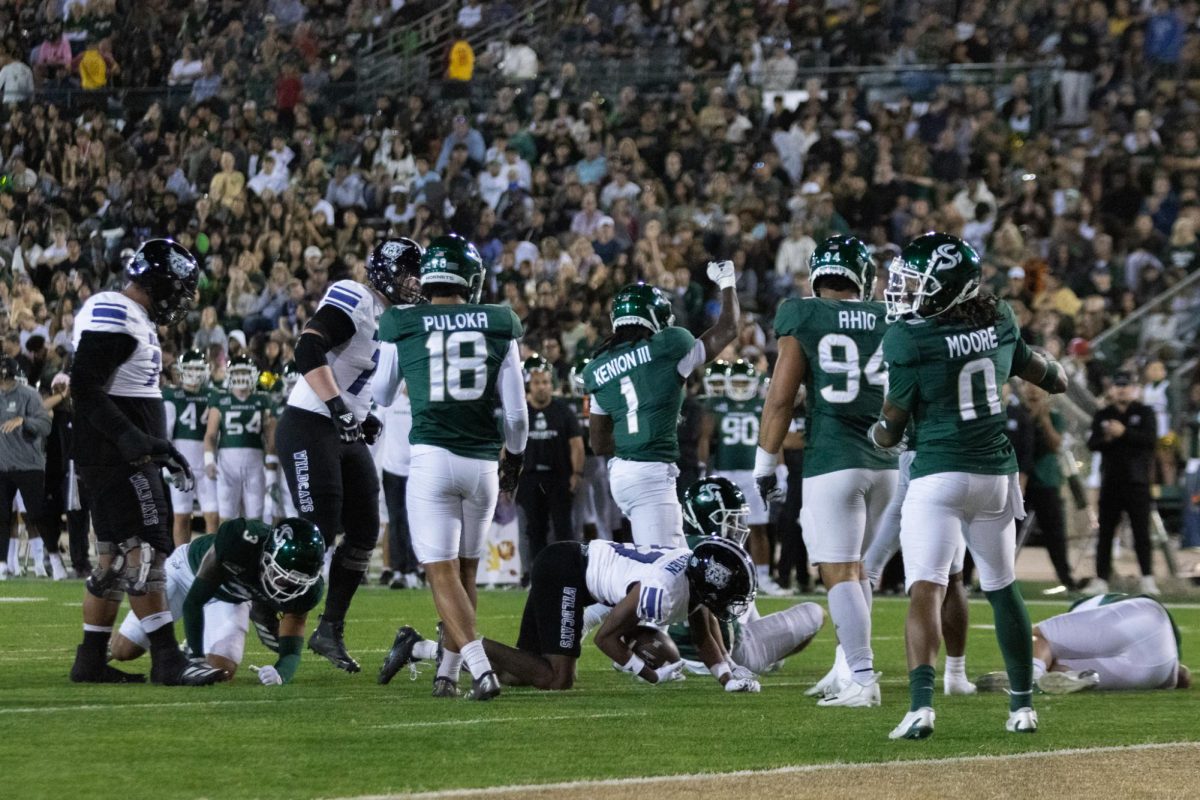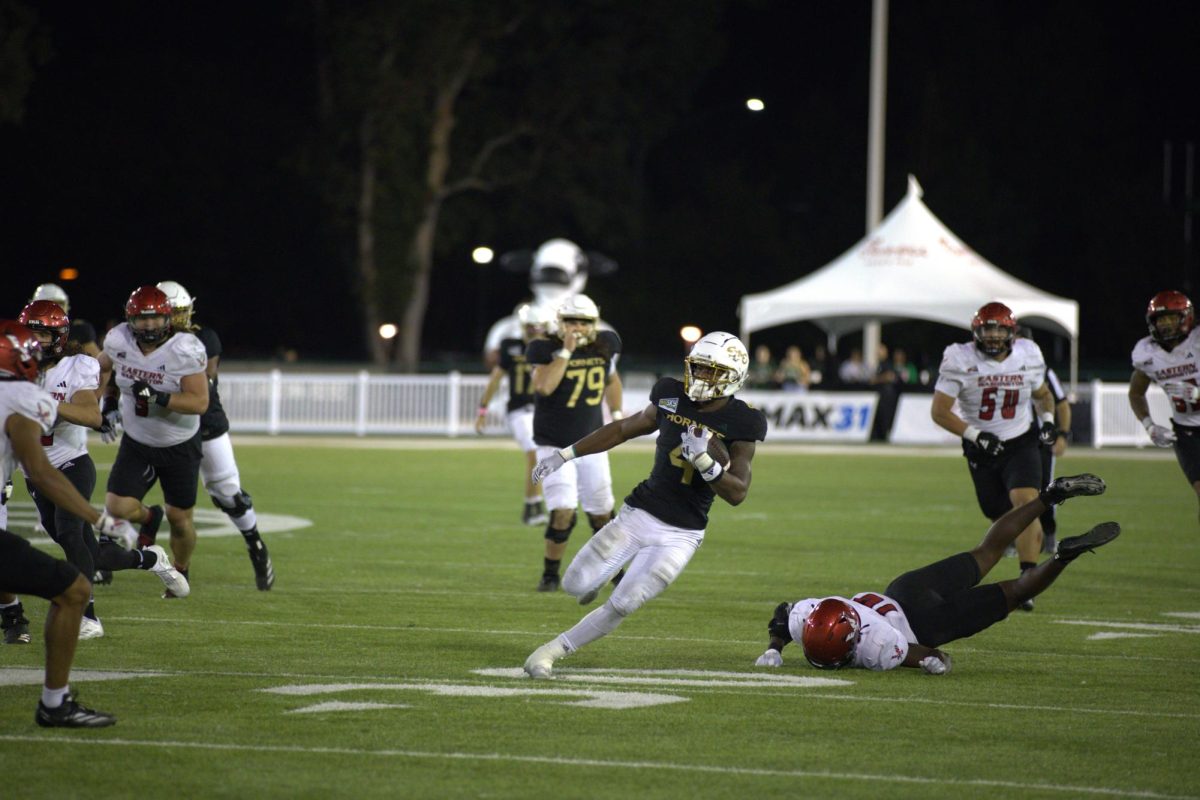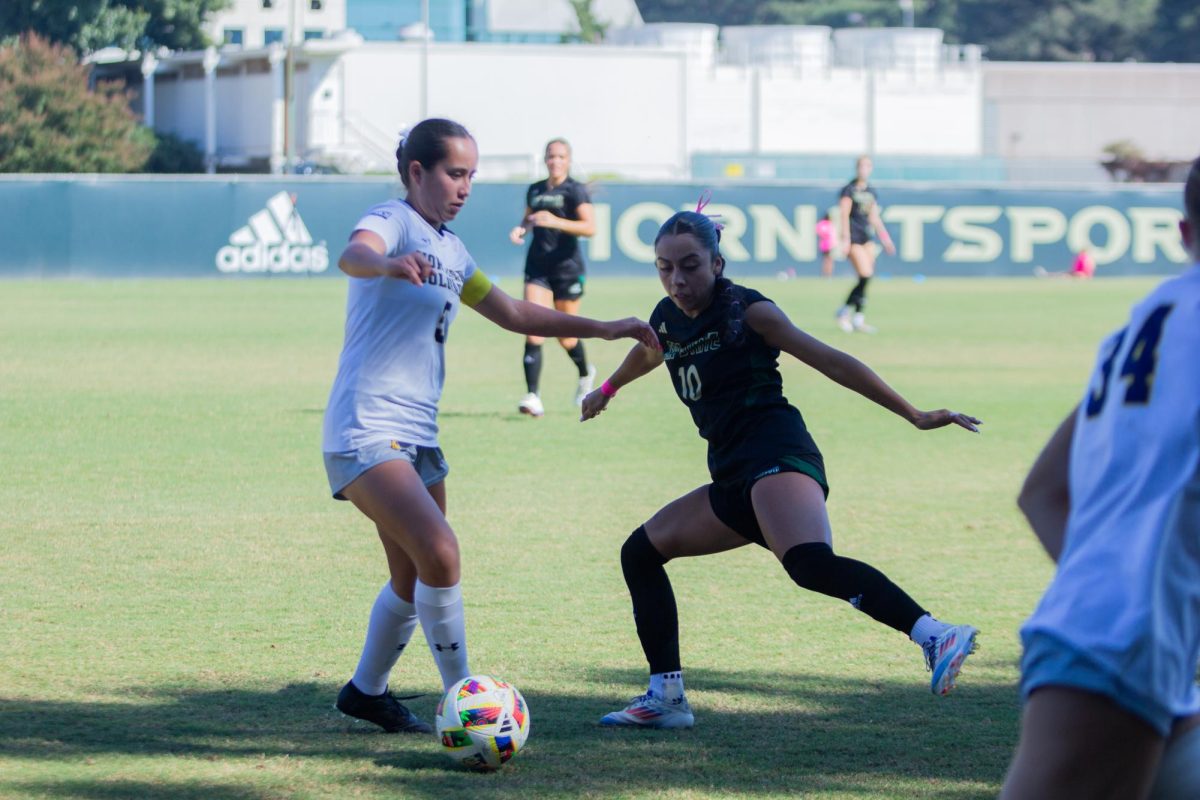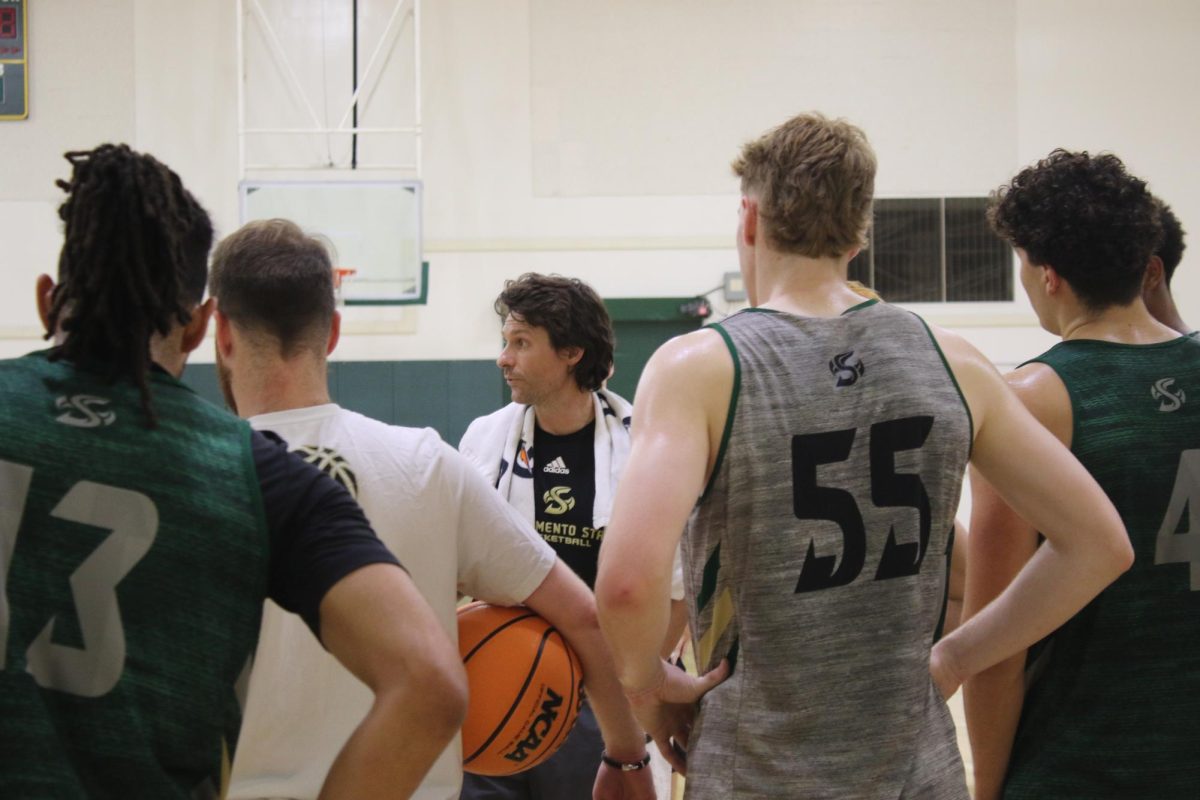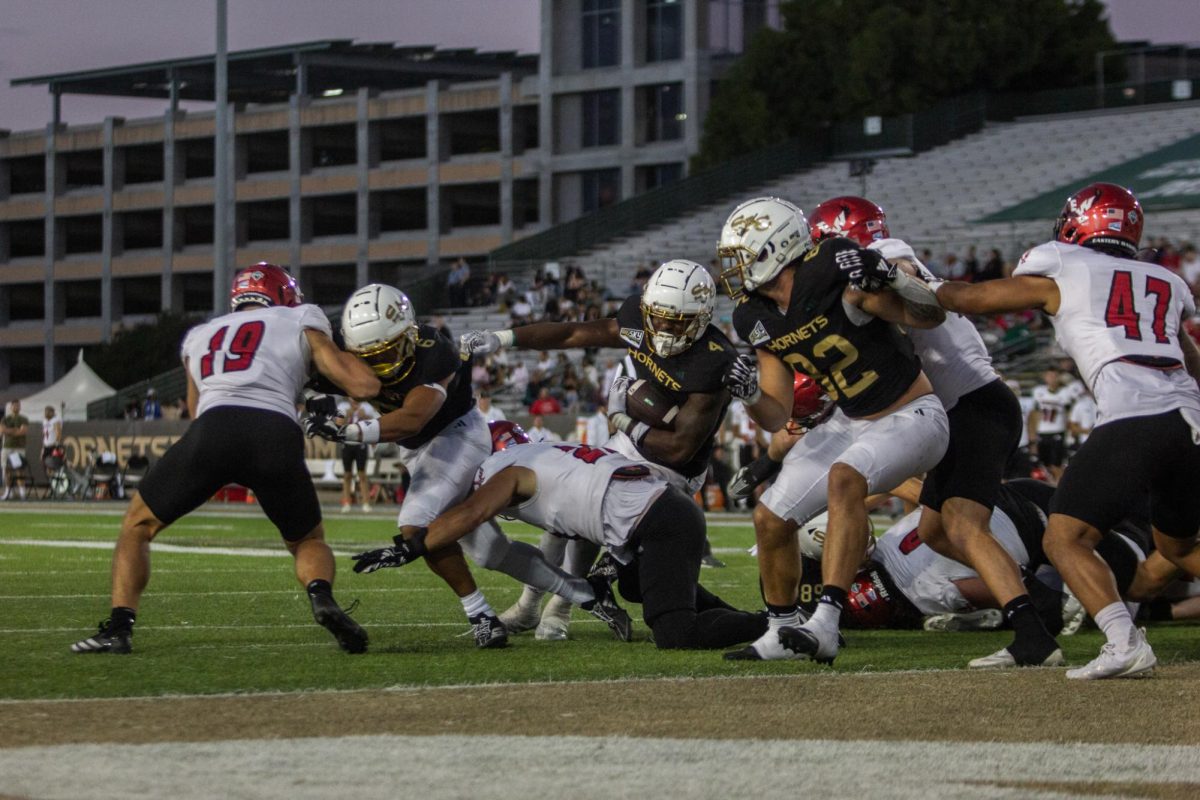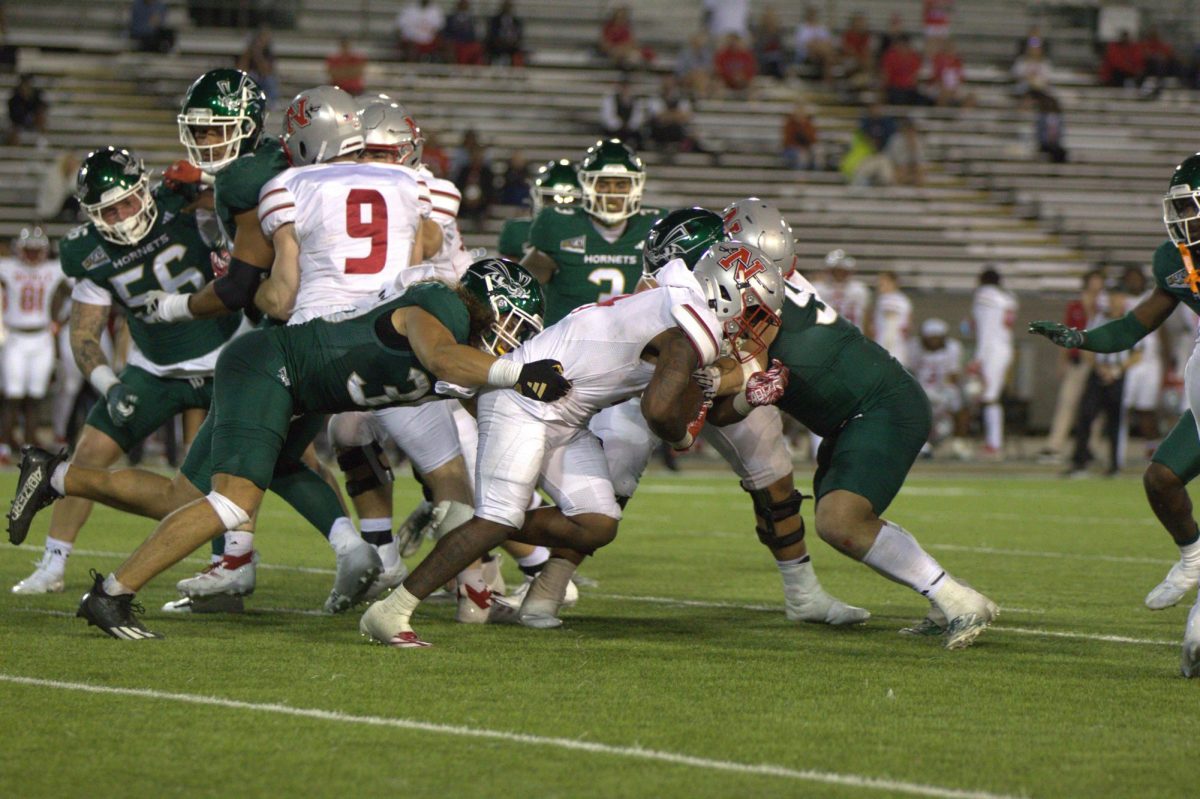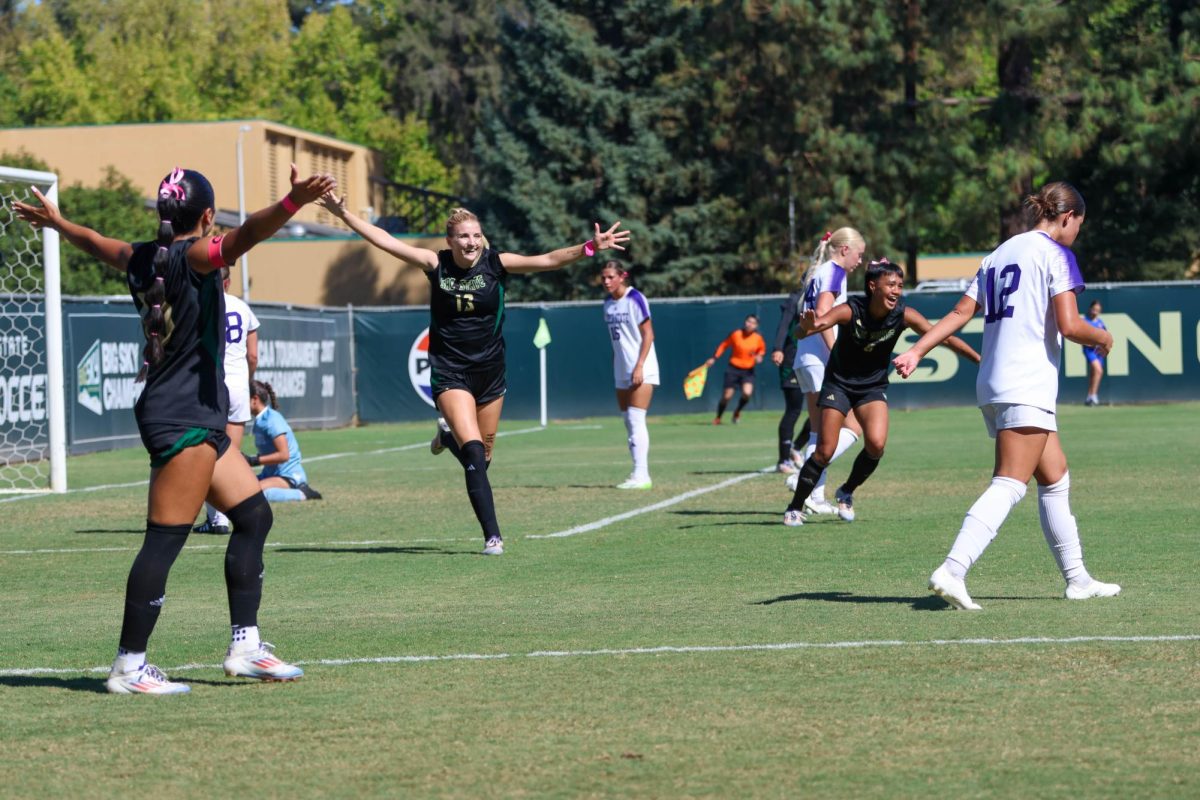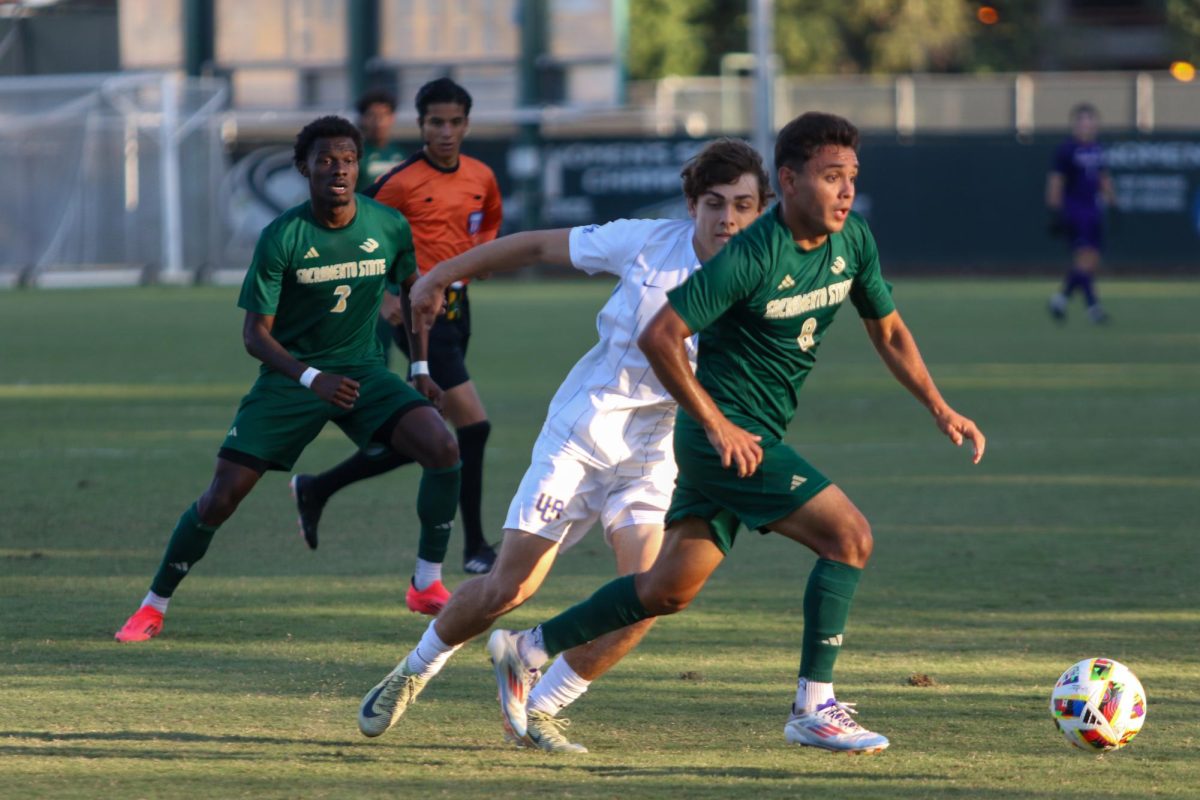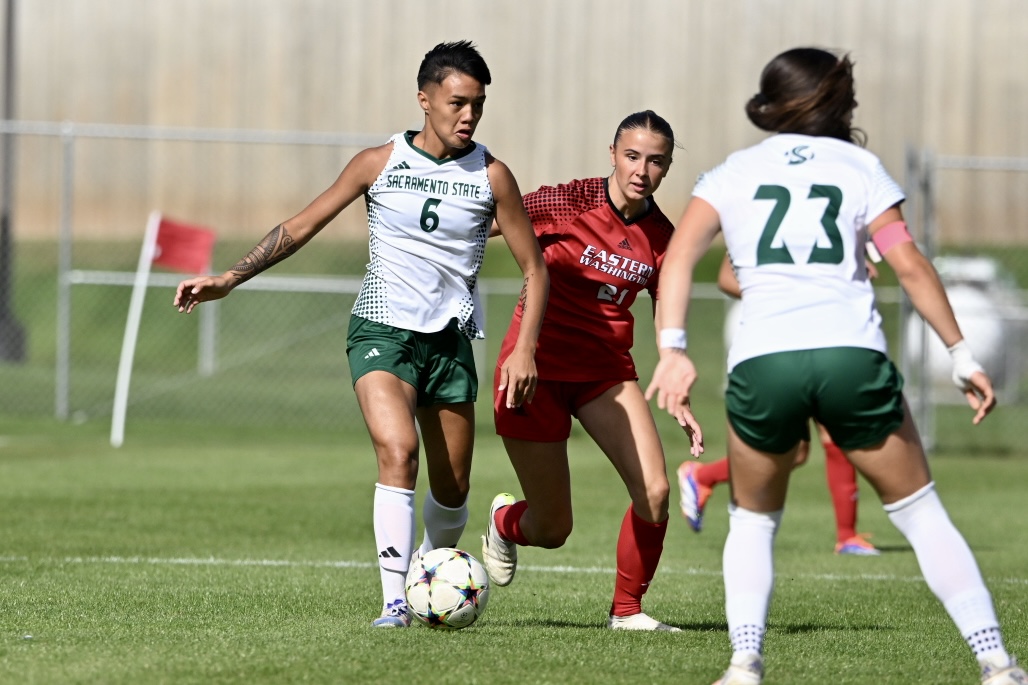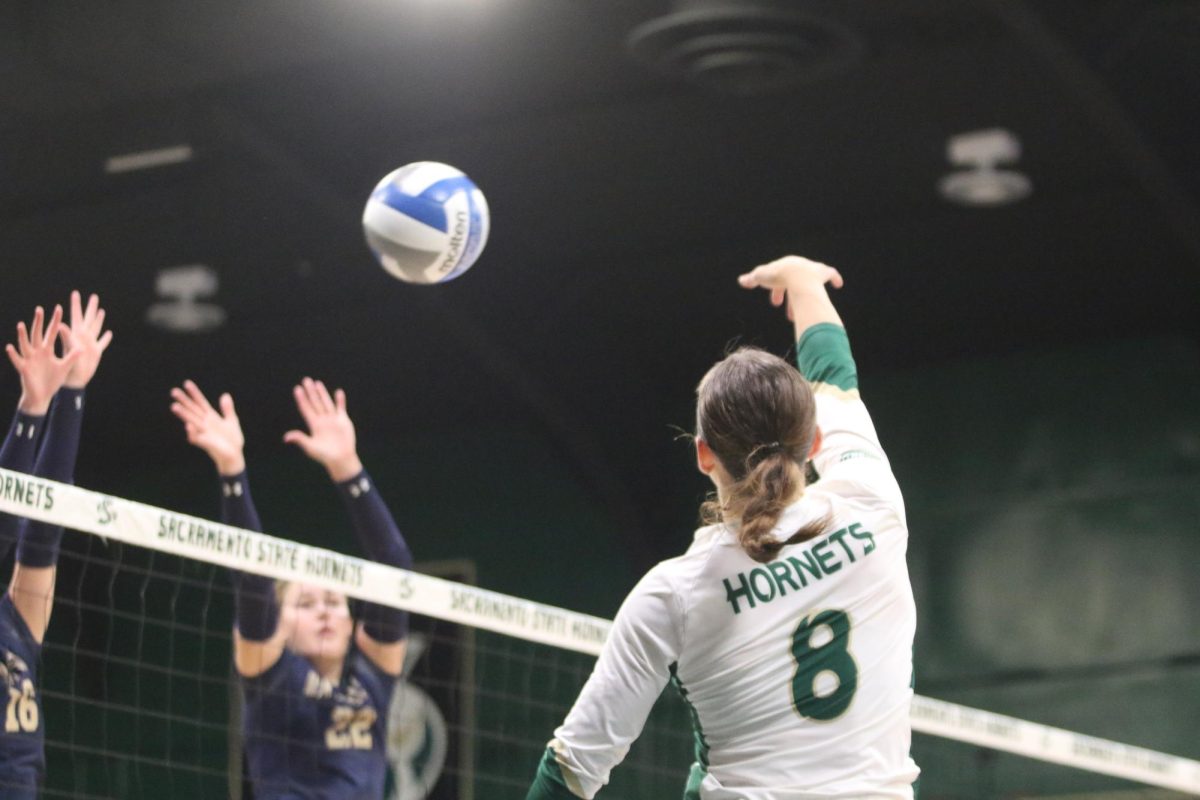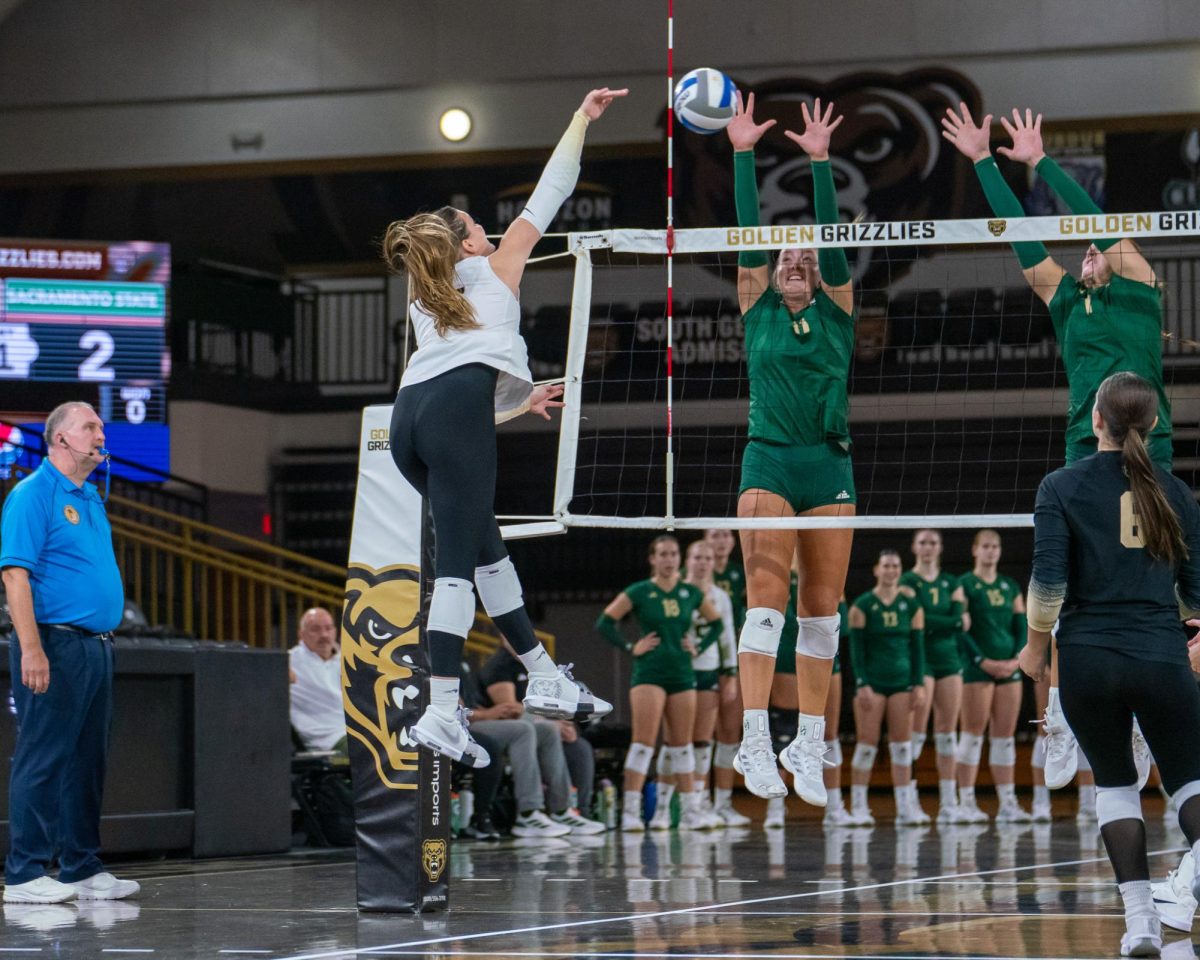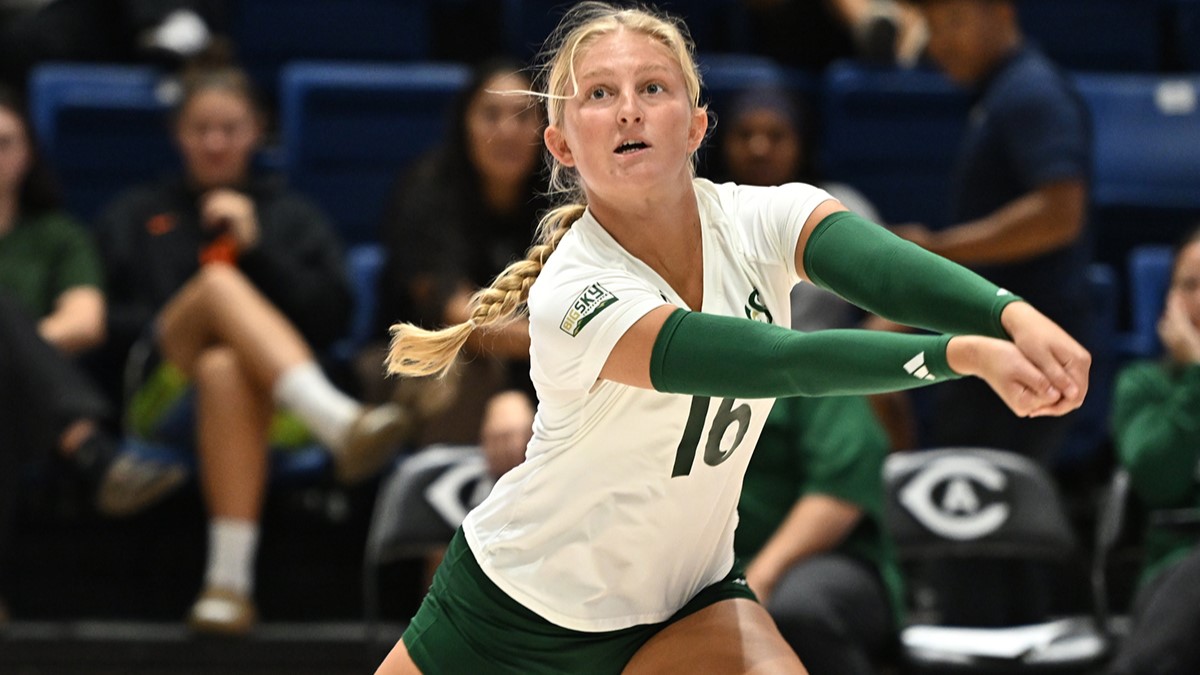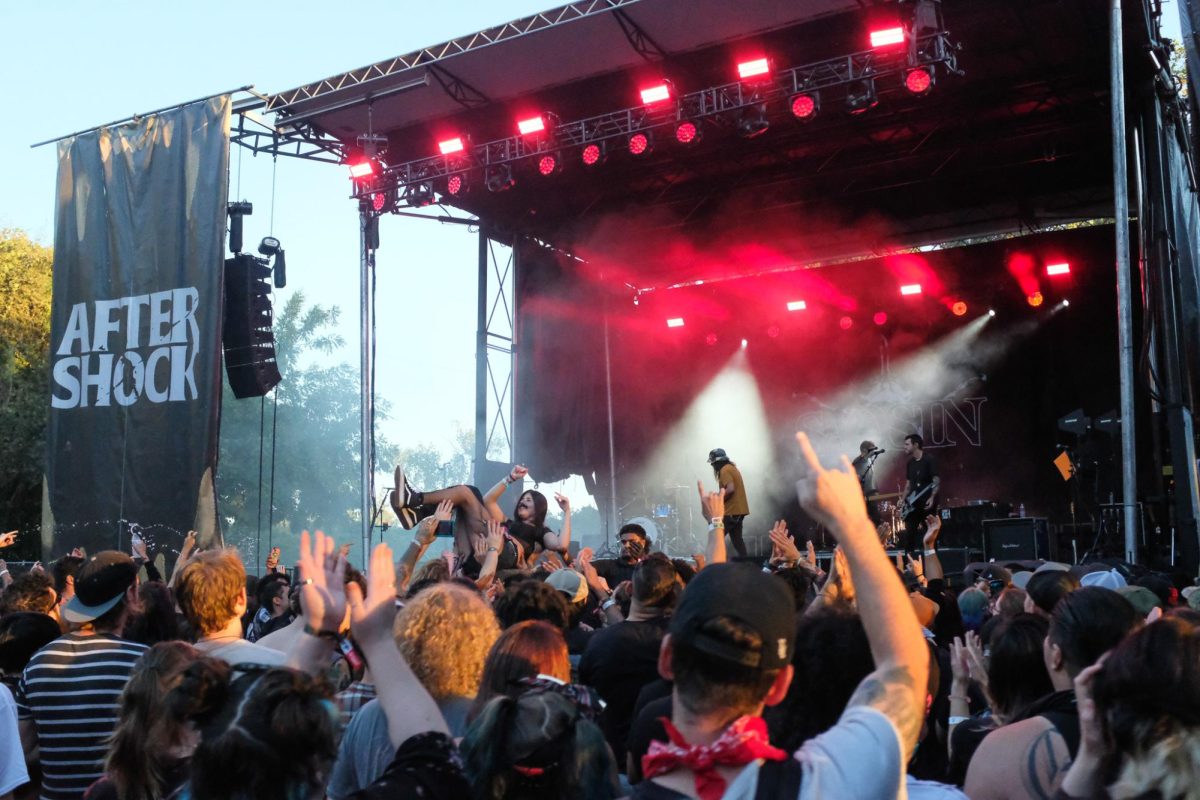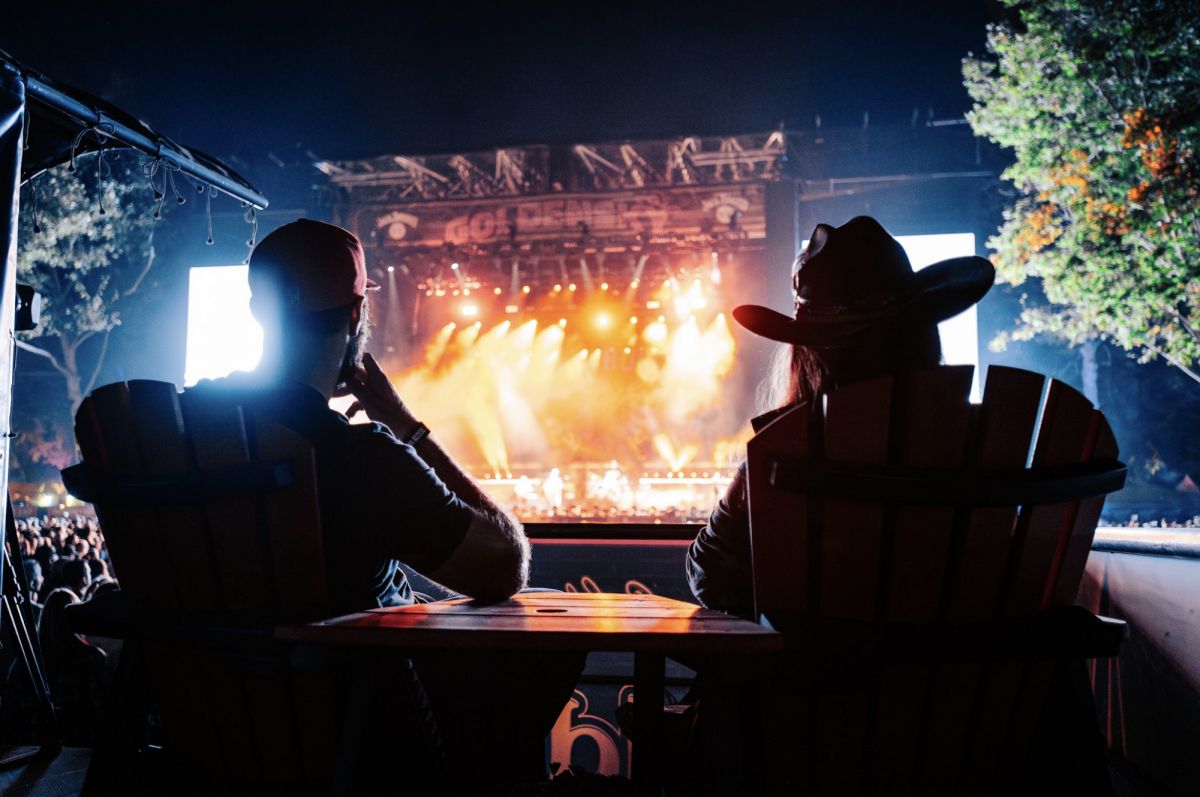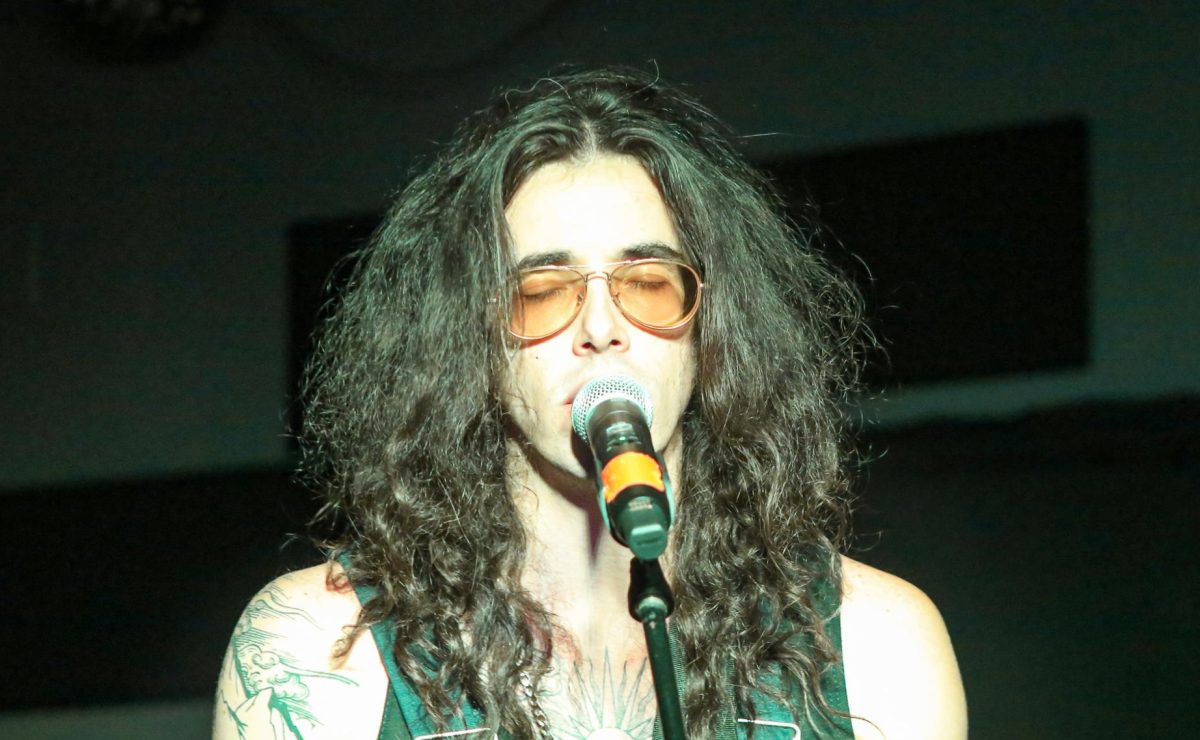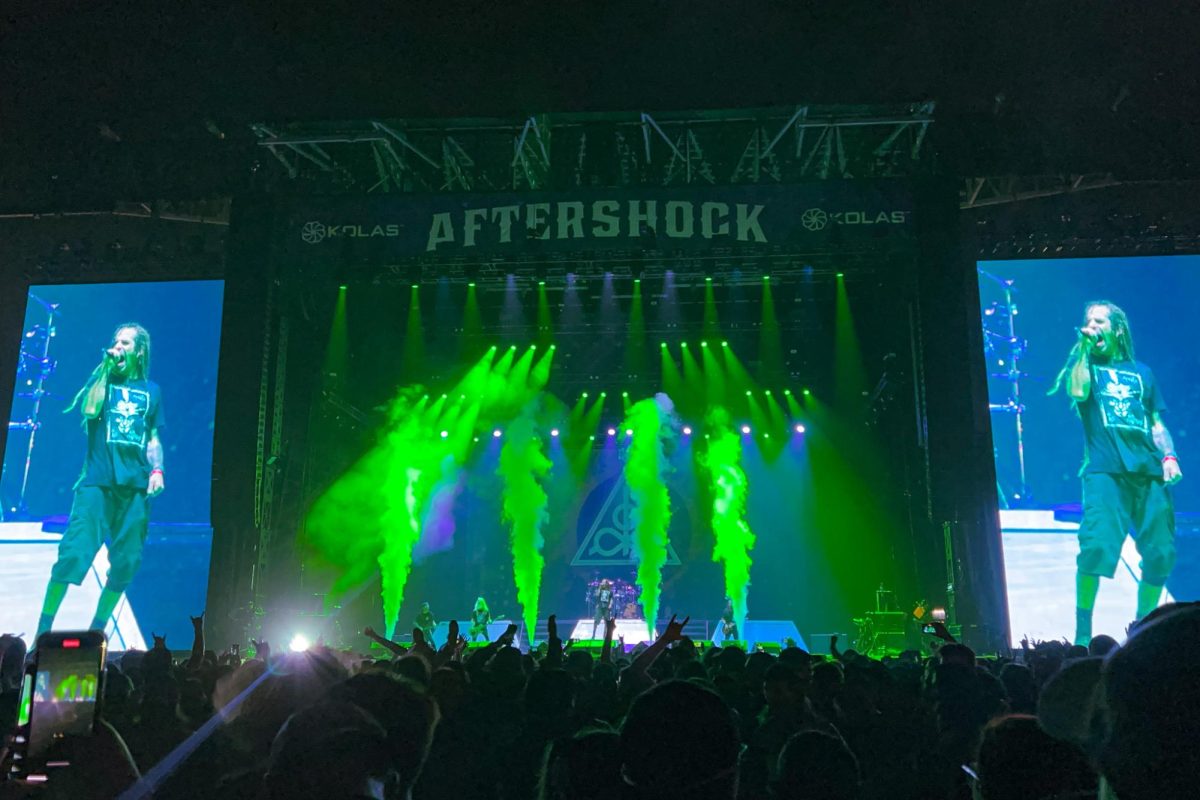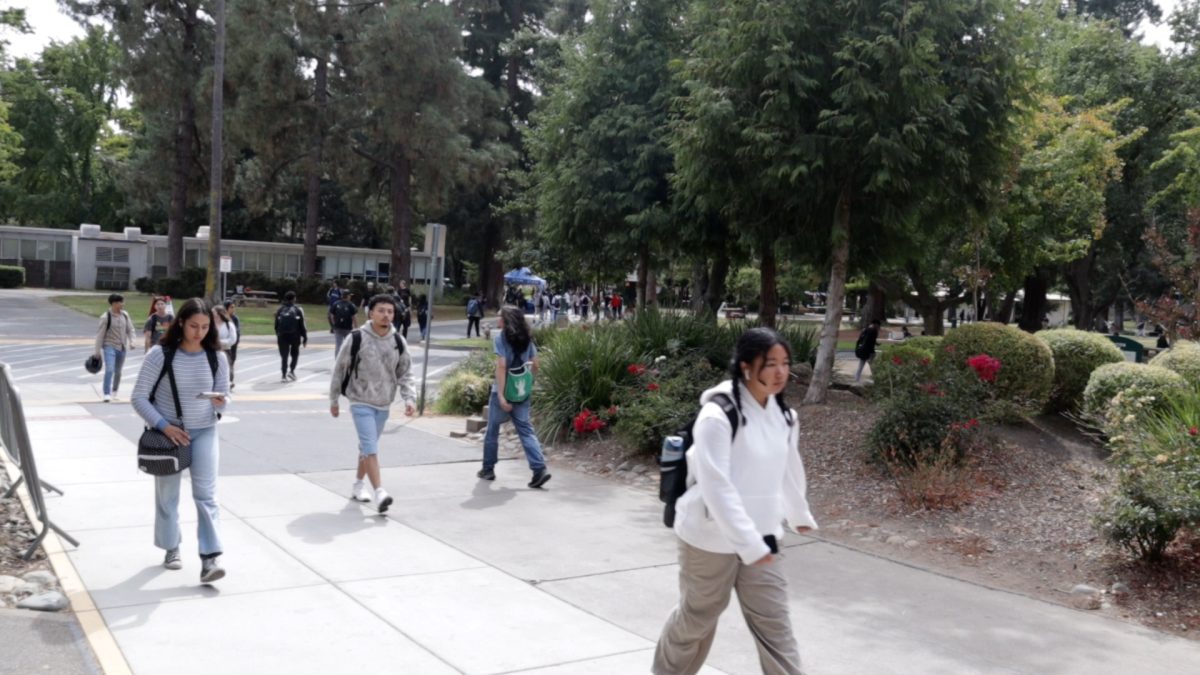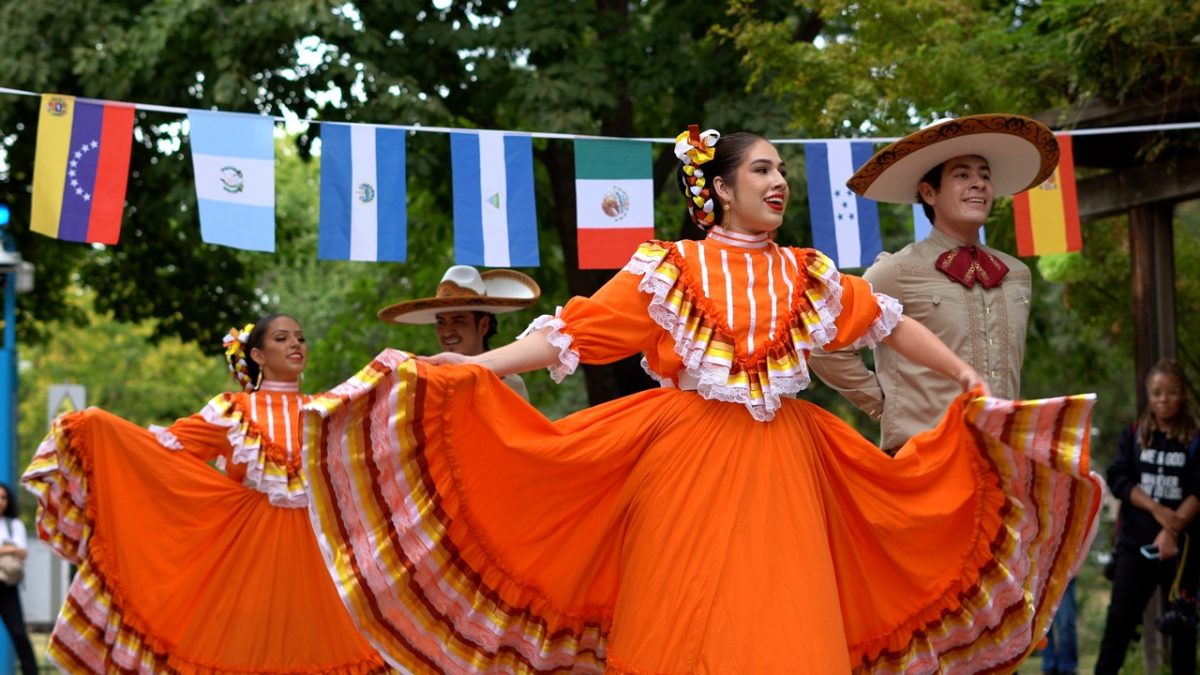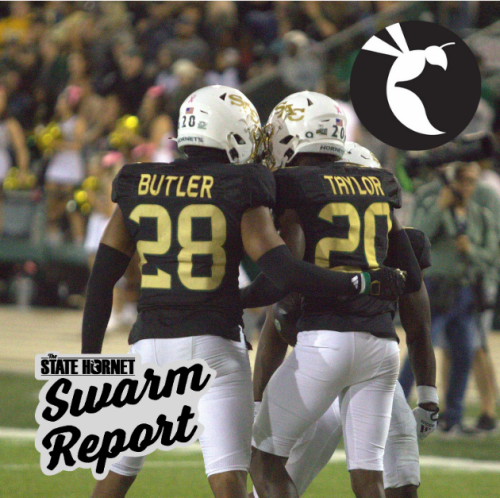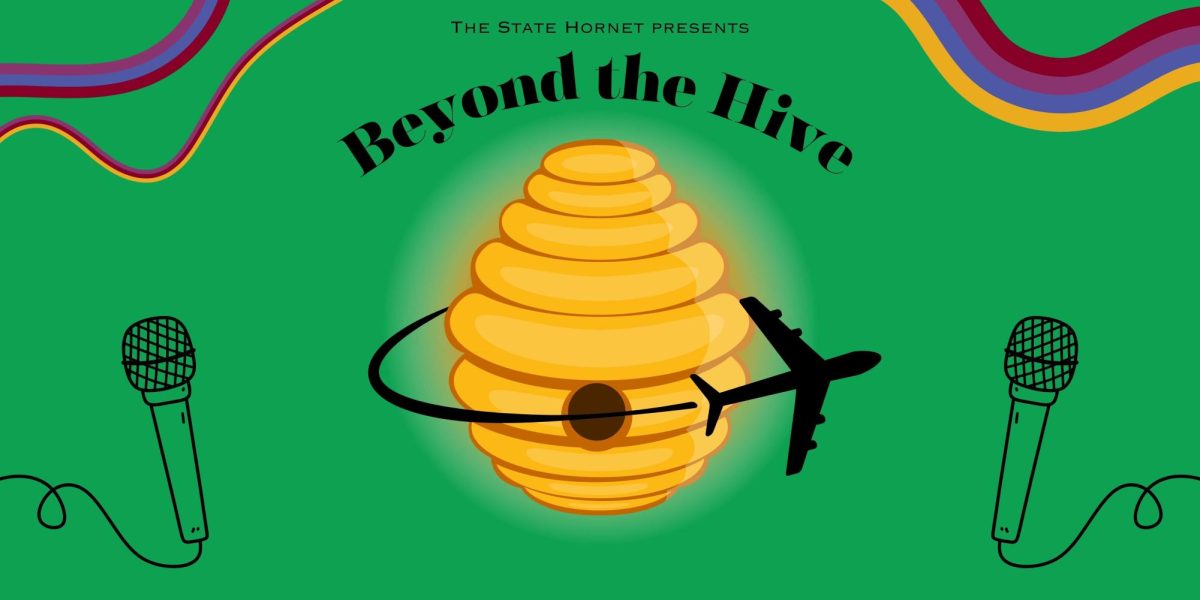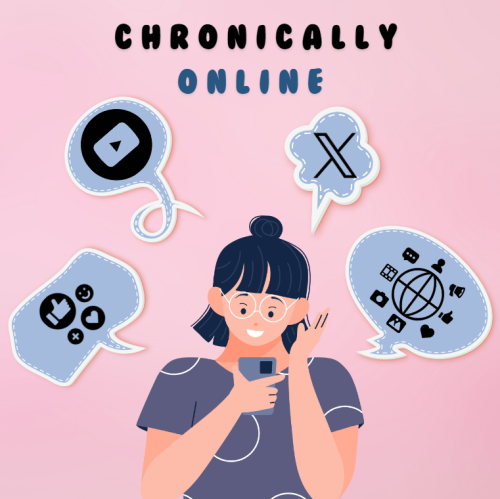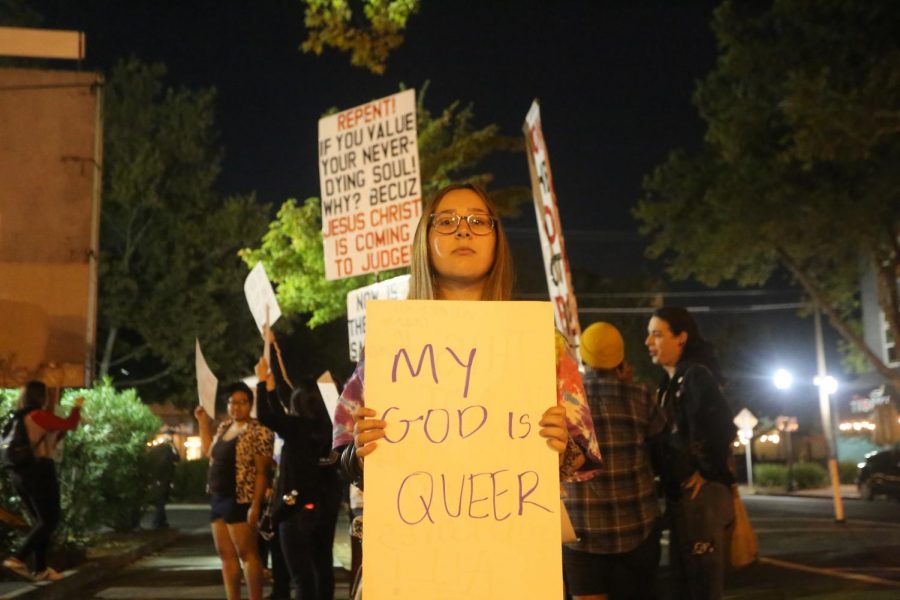40th annual Take Back the Night raises awareness of gender-based violence
Evangelists protested the event, leading to counter-protests during the march
Emigh Turnbull, an El Camino High School junior, holds up a sign in front of protesters at the Take Back the Night rally and march Saturday evening. “Growing up Christian, I know he is all loving and to not accept others for who they are is not God’s way,” she said.
October 13, 2019
Take Back the Night Sacramento held their 40th annual rally and march to raise awareness of, and bring an end to gender-based violence Saturday evening in Midtown, Sacramento.
Take Back the Night is an organization that works toward ending all forms of violence. The organization supports LGBTQ+ and other marginalized communities and provides a place for survivors of gender-based violence to share their voices and raise awareness.
RELATED: Take Back the Night gives voice to survivors
The rally started at Sacramento Native American Health Center and included a number of speakers and performers. After the opening, the crowd marched through Midtown, chanting “hey hey ho ho rape culture has got to go.”
Reporting from Take Back the Night in Midtown, watch Aztec dance group, Danzantes @TheStateHornet pic.twitter.com/JgVFF4EZOL
— Patrick Walsh (@Patrick_JWalsh) October 13, 2019
Keyko Torres, a 2011 Sac State alumna and vice president of Community Engagement with Take Back the Night, is a survivor of sexual violence. In 2006, the same year she started college, Torres endured several sexual assaults.
“I was engaging in self-destructive behavior, I had a really difficult relationship with my body and sexuality,” Torres said. “A lot of abuse and abusers occur out of a power imbalance.”
Keyko Torres, Vice President of Community Engagement with #TakeBackTheNightSacramento tells us about what the unfortunate realities gender violence people of endured @TheStateHornet pic.twitter.com/PlKhIVAm5v
— Kendra Linnette (they/them) (@iamkendralinnet) October 13, 2019
Torres said that attending therapy in 2010 led her to recognize her power and eventually take part in activism.
“I experienced the most healing in (Take Back the Night,)” Torres said. “I learned that no one can take things from me or break me. I was able to see them grow from our progress.”
Torres now advises those who experience gender-based violence like herself to accept and heal from their unfortunate trauma.
Sac State political science major, Deion Seruelo, said he attended to support the feminist cause of the rally and to represent the Sacramento Party for Socialism and Liberation.
“We understand that under the patriarchal system of capitalism, women’s repression is a fundamental aspect of the wealthy elite’s gains,“ Seruelo said. “We’re out here to support survivors of sexual and gender-based violence.”
Syd Scanlon, 23, is an Oregon State University student working on a woman and gender studies major with a minor in queer studies. She said as a teenager she survived multiple sexual assaults, one at the hands of her then-boyfriend.
Scanlon said that her mom had taken her to a production of the “Vagina Monologues” put on by V-Day Sacramento to offer clarity.
RELATED: ‘A Memory, A Monologue, A Rant, and A Prayer’ seeks to represent marginalized voices
“My mom knew at the time that I was really struggling with a lot of stuff and halfway through the show she leaned over to me and she said ‘you could do something like that,’” Scanlon said. “‘You can get up on stage and tell your story.’”
Scanlon did end up becoming a part of V-Day Sacramento, an organization that focuses on ending violence towards women and girls. She also became a counselor at a residential safe house operated by WEAVE.
Christine Amaro-Barrera spoke at Take Back the Night about police and racial violence. Barrera’s son Michael Anthony Barrera died after being tased three times before being taken into custody by Woodland police in February of 2017.
“In his last moments and as his mom, I feel like I died with him that day,” Amaro-Barrera said.“Today, along with my son’s story, I want everyone to know that this is not an isolated incident, we see this happening literally every day in our country. So what can we do? We can demand accountability, transparency and not allow them to investigate themselves.”
Stevante Clark, brother of Stephon Clark, also spoke at the event. Stephon Clark was shot and killed by Sacramento police in March of last year.
RELATED: Stephon Clark shooting leads to weeks of protests in Sacramento
“I’m standing in solidarity with all of you,” Clark said. “I’m a vessel and a voice for my brother just like (Amaro-Barrera) is a voice for her son, Michael Barrera.”
The rally also served as a resource fair for survivors of sexual assault and anyone else in attendance. Planned Parenthood and the Sacramento LGBT Community Center were both present at the event, along with other groups that provided information about the fight against sex trafficking, safe places for LGBT people of all ages and political organizations. Counselors and therapy dogs were also present.
At one point during the rally, protestors from reformedevangelist.com stood on the street with signs condemning attendees. Their presence did not hinder the night as attendees of the rally stood in front of them to block them out.
Take Back the Night coordinators and volunteers have started to stand in front of and block the protestors who have started to preach about judgement and have started to hand out religious pamphlets. @TheStateHornet pic.twitter.com/uB7eUEvD5F
— brooke uhlenhop (@BrookeUhlenhop) October 13, 2019
“Sacramento Take Back the Night always means a lot for me year-round,” said Indie Pichardo of Sacramento, who has been attending the event for seven years.
Pichardo said of the event, “it’s very healing and very uplifting to be here year after year and share this space with so many other people that I know have the same intention of doing so.”
Rain Maxwell of Sacramento shared why they think Take Back the Night is so important.
“I’m also a survivor of sexual assault and that experience can be so isolating,” Maxwell said. “I think to be in a space where you’re reminded so much of how much of a community you actually have, that’s really impactful and healing.”



